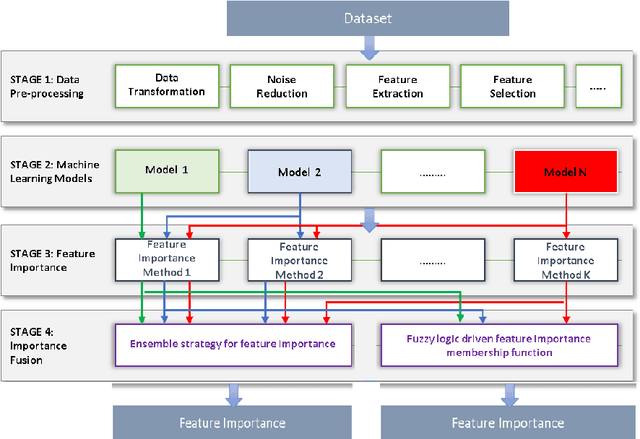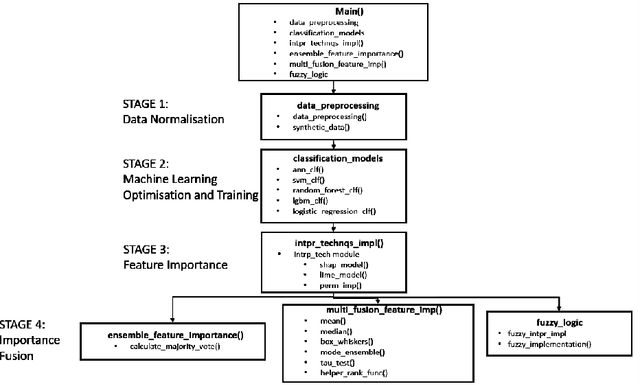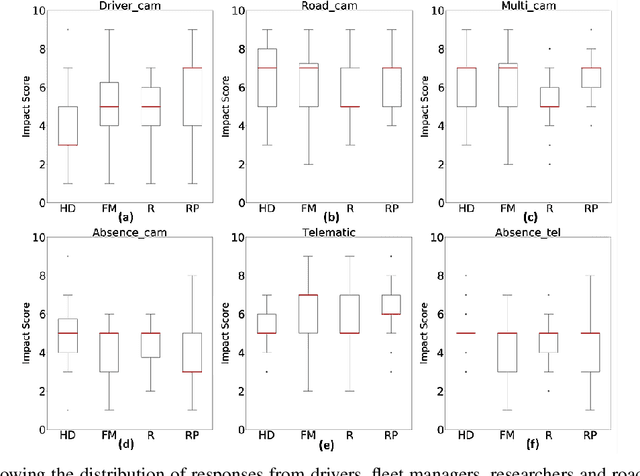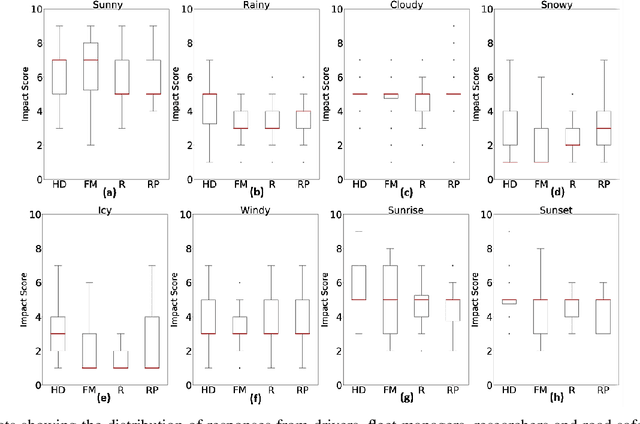Jimiama Mafeni Mase
EFI: A Toolbox for Feature Importance Fusion and Interpretation in Python
Aug 08, 2022



Abstract:This paper presents an open-source Python toolbox called Ensemble Feature Importance (EFI) to provide machine learning (ML) researchers, domain experts, and decision makers with robust and accurate feature importance quantification and more reliable mechanistic interpretation of feature importance for prediction problems using fuzzy sets. The toolkit was developed to address uncertainties in feature importance quantification and lack of trustworthy feature importance interpretation due to the diverse availability of machine learning algorithms, feature importance calculation methods, and dataset dependencies. EFI merges results from multiple machine learning models with different feature importance calculation approaches using data bootstrapping and decision fusion techniques, such as mean, majority voting and fuzzy logic. The main attributes of the EFI toolbox are: (i) automatic optimisation of ML algorithms, (ii) automatic computation of a set of feature importance coefficients from optimised ML algorithms and feature importance calculation techniques, (iii) automatic aggregation of importance coefficients using multiple decision fusion techniques, and (iv) fuzzy membership functions that show the importance of each feature to the prediction task. The key modules and functions of the toolbox are described, and a simple example of their application is presented using the popular Iris dataset.
Contextual Intelligent Decisions: Expert Moderation of Machine Outputs for Fair Assessment of Commercial Driving
Feb 20, 2022



Abstract:Commercial driving is a complex multifaceted task influenced by personal traits and external contextual factors, such as weather, traffic, road conditions, etc. Previous intelligent commercial driver-assessment systems do not consider these factors when analysing the impact of driving behaviours on road safety, potentially producing biased, inaccurate, and unfair assessments. In this paper, we introduce a methodology (Expert-centered Driver Assessment) towards a fairer automatic road safety assessment of drivers' behaviours, taking into consideration behaviours as a response to contextual factors. The contextual moderation embedded within the intelligent decision-making process is underpinned by expert input, comprising of a range of associated stakeholders in the industry. Guided by the literature and expert input, we identify critical factors affecting driving and develop an interval-valued response-format questionnaire to capture the uncertainty of the influence of factors and variance amongst experts' views. Questionnaire data are modelled and analysed using fuzzy sets, as they provide a suitable computational approach to be incorporated into decision-making systems with uncertainty. The methodology has allowed us to identify the factors that need to be considered when moderating driver sensor data, and to effectively capture experts' opinions about the effects of the factors. An example of our methodology using Heavy Goods Vehicles professionals input is provided to demonstrate how the expert-centred moderation can be embedded in intelligent driver assessment systems.
 Add to Chrome
Add to Chrome Add to Firefox
Add to Firefox Add to Edge
Add to Edge